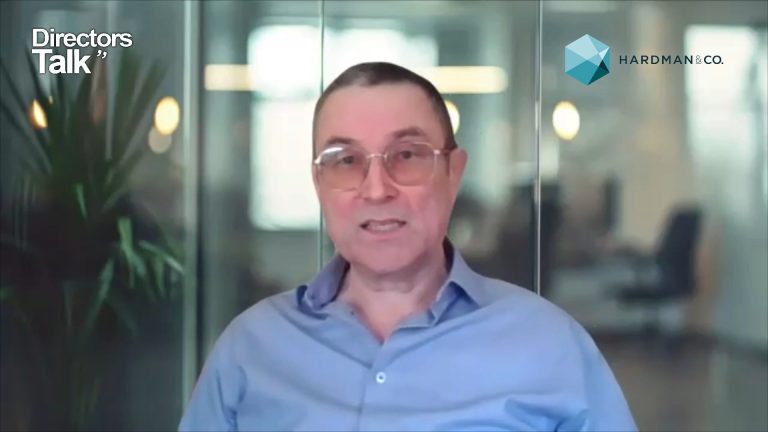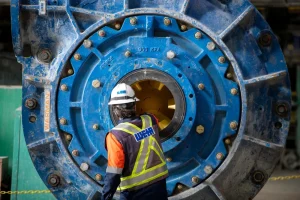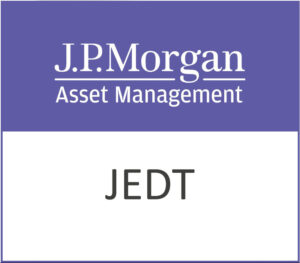Yew Grove REIT plc (LON:YEW) is the topic of conversation when Hardman and Co’s Analyst Mike Foster caught up with DirectorsTalk for an exclusive interview.
Q1: What does Yew Grove REIT do?
A1: Its role is to generate superior total returns by investing in real estate in the Republic of Ireland. It achieves this by acquiring modern assets in higher-yielding locations that are in high demand from tenants. 46% of portfolio assets are in Dublin, outside the CBD – an asset class and location epitomising this investment strategy.
Q2: What are the company’s financial achievements?
A2: Their offices’ net initial yields (NIYs) stand at just above 7%, with reversionary potential taking them higher than this once market comparable rental levels are reached. Industrial yields are higher still. Running yields are 8.2%, including void elimination but before reversions. Both asset classes are valued at below replacement cost – a function of the general financial economic problems 10 years ago. EPRA EPS return on NAV is the highest in the peer group. Like-for-like values increased by 5.3% in 2019. A good proportion of this was from outperformance of local markets.
Q3: Are its superior yields a function of greater risks?
A3: These yields are not a function of propensity to voids or lower covenant tenants – quite the reverse. Effectively, almost 100% of rents have been collected on time in the recent market-wide problems from COVID-19. The majority of tenants are either governmental or larger multi-national corporations. Yet the yields are attractive and valuations rising. Voids in the portfolio arise solely from one asset, where a substantial lump sum was paid by the tenant to exit early, and from voids in place when the assets were recently acquired.
Q4: What are the company’s asset types?
A4: The company achieves this financial performance by a focus on assets that are attractive to tenants in expansion mode and by excluding Dublin CBD from its target locations. Central Dublin has seen rent rises from an earlier point in the economic cycle than other office districts in the city, and rents are, of course, substantially higher.
Q5: There must be some risks – are there not?
A5: Near 60% of assets are in offices, and the post-COVID-19 commentary is around changing work patterns. The company locations are in high demand and – crucially in this context – offer value for their tenants, with less intensive floorspace/desk ratios than CBD. They all have strong transport links for both public transport and car usage. With inward foreign investment and already low voids in Dublin CBD, Dublin non-CBD is increasingly in demand. Many regional locations are on business parks promoted as growth points for foreign inward investment by quasi-governmental agencies. 40% of assets are in sheds. 2% are mixed-use schemes.
Q6: How do the valuation trends look in Dublin offices?
A6: The company has nothing in Dublin CBD, but Dublin non-CBD is its largest series of locations. The remaining Dublin office valuations are ca.40% below peak levels and ca.20% below the 20-year average per sq. ft., but CBD Dublin office capital values are a little above the 20-year average and ca.24% below the 2007 peak. However, in the past three years, rent rises in non-CBD Dublin have been slightly ahead of the CBD rises.
Q7: The company recently came to the market – so does this hurt its financial returns?
A7: It has a net asset value of €110m. They remain small after a 2018 IPO and a follow-on equity raise, but further equity raises are anticipated within 12 months. There is current authority to issue up to 100m new shares. 2019 administrative expenses were, indeed, 31% of rental income, as a function of the REIT’s modest size. We estimate this will fall to 25% by 2022, as a result of void elimination and modest rent growth and reversions.
Q8: So, it’s growing?
A8: It has had a successful follow-on equity raise. The strategy remains to grow the asset and equity base. There is a large pipeline of potential acquisitions in a regional market well- known to the management team. While the office market, excluding Dublin CBD, is under-invested, with few non-local investors, it still offers a large investible market of ca.€8.5bn, compared with Dublin CBD of €13.8bn. So, there is a market out there for them to invest in & the management know the vendors & the market pretty well. Since IPO, Yew Grove REIT has done well and, with or without expanding the equity base, there is a highly visible route to raising dividends. By 2022, we estimate 6.8 cents dividend per share from sustainable ongoing rental income – an attractive dividend yield over 7%.










































